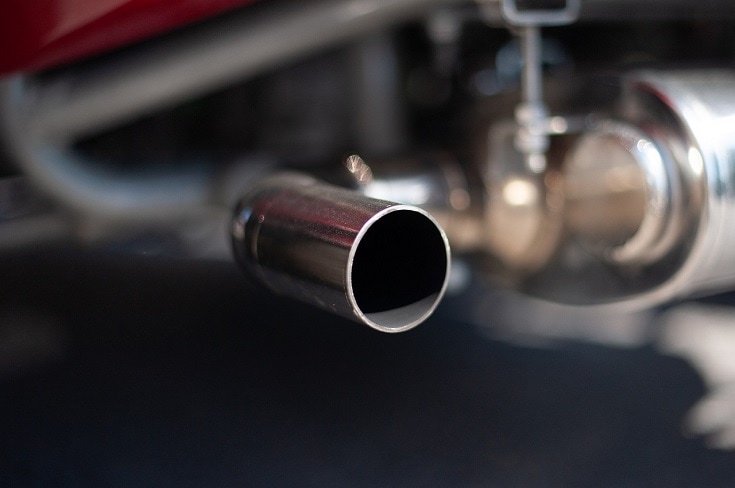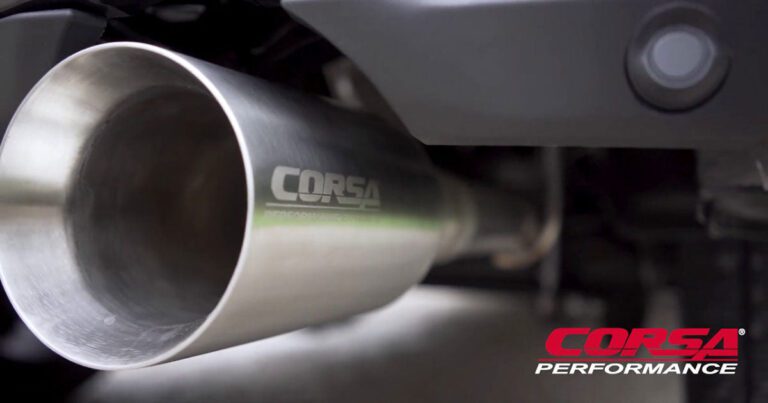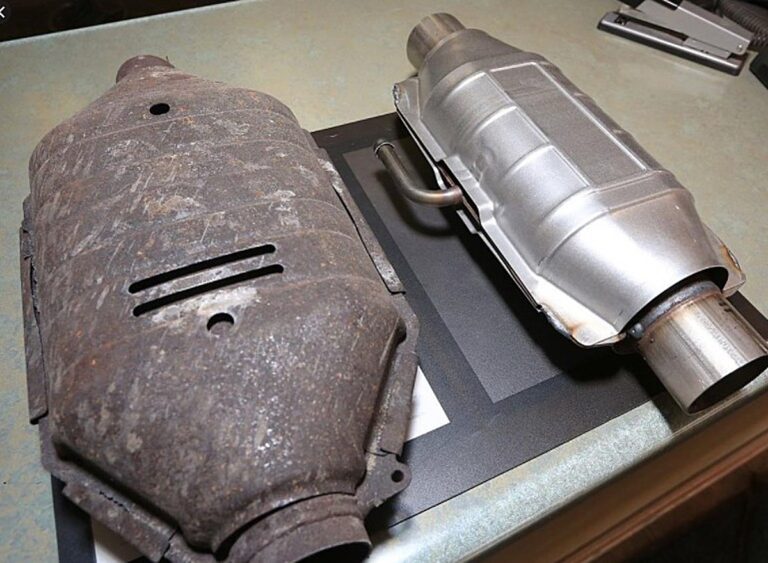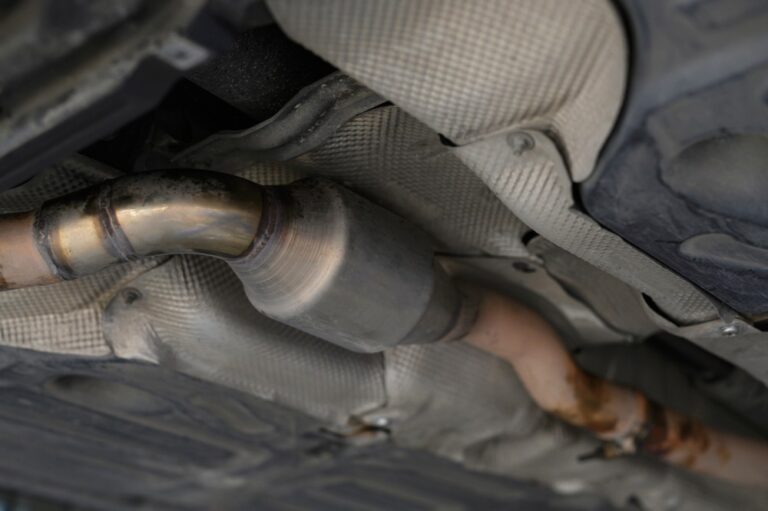How Long Should an Exhaust System Last: A Complete Guide
An exhaust system should last for an average of 5 to 7 years before it needs to be replaced. The lifespan of an exhaust system can vary depending on several factors, including the type of vehicle, driving conditions, and maintenance.
However, with regular care and maintenance, such as regular cleaning and inspections, an exhaust system can last even longer. Regular wear and tear, exposure to harsh environmental conditions, and the accumulation of carbon deposits can contribute to the deterioration of an exhaust system over time.
Eventually, this can lead to issues such as leaks, damaged mufflers, or rusted pipes. Identifying these problems early on and addressing them promptly can prolong the life of an exhaust system. We will discuss the factors that affect the lifespan of an exhaust system and provide tips for maintenance and care to ensure it lasts as long as possible. So, let’s delve deeper into the world of exhaust systems and explore how to keep them in optimal condition for years to come.
Factors Affecting The Lifespan Of An Exhaust System
The lifespan of an exhaust system is determined by various factors:
- The Material Used in Manufacturing: The choice of material used in the construction of an exhaust system plays a crucial role in its longevity. High-quality stainless steel or aluminized steel tends to have a longer lifespan compared to standard steel or low-quality materials.
- Driving Conditions and Habits: The driving conditions and habits can also impact the lifespan of an exhaust system. Frequent exposure to harsh weather conditions, rough terrains, and aggressive driving styles, such as high-speed driving or sudden acceleration, can put additional strain on the exhaust system, leading to premature wear and tear.
- Maintenance and Care: Regular maintenance and proper care are essential for prolonging the life of an exhaust system. This includes timely inspections, addressing any issues or damage promptly, and keeping the system clean and free from debris or corrosion. Neglecting maintenance can contribute to rust and deterioration, shortening the overall lifespan.

Credit: waterwelders.com
Signs Of Exhaust System Wear And Tear
Exhaust systems play a crucial role in the overall performance and efficiency of a vehicle. Knowing the signs of wear and tear can help you determine the longevity of your exhaust system. Increased noise levels are one clear indication of potential issues. If you notice your vehicle getting louder, it may be due to a compromised exhaust system. Decreased fuel efficiency is another sign that your exhaust system may need attention. A properly functioning exhaust system helps optimize fuel consumption, so a drop in mileage could be a red flag. Rust and corrosion are common issues that can affect exhaust systems, especially in regions with harsh weather conditions. It’s important to regularly inspect for any signs of rust or corrosion. Finally, if you start to smell exhaust fumes inside or outside your vehicle, it’s a definite sign of a problem. Inhaling exhaust fumes can be harmful, so it’s crucial to address this issue promptly.
Extending The Lifespan Of Your Exhaust System
htmlExtending the Lifespan of Your Exhaust System
Regular maintenance and inspections are essential for prolonging the lifespan of your exhaust system. By following these guidelines, you can ensure that your exhaust system lasts for as long as possible:
| Guidelines | Actions |
|---|---|
| Regular Maintenance | Regularly check and replace worn-out parts or components to prevent further damage. |
| Keeping the Exhaust System Clean | Periodically clean the exhaust system to remove debris and minimize the risk of blockages or corrosion. |
| Avoiding Excessive Idling | Avoid leaving your vehicle running for extended periods to reduce stress on the exhaust system. |
By adhering to these guidelines, you can significantly increase the longevity of your exhaust system and prevent unnecessary repairs or replacements. Remember to prioritize regular maintenance, keep the exhaust system clean, and avoid excessive idling to ensure optimal performance and durability.
The Average Lifespan Of Different Exhaust System Components
The lifespan of an exhaust system depends on several factors, including the quality of the components and the driving conditions. Among the different components, the catalytic converters play a crucial role in reducing harmful emissions. On average, catalytic converters can last anywhere between 70,000 to 100,000 miles. However, their lifespan can be significantly shortened if the engine is running poorly or if there is a problem with the fuel or ignition system.
Mufflers, responsible for reducing noise levels, typically last around 100,000 miles. However, this can vary depending on the type of muffler and the driving conditions. High-performance mufflers may have a shorter lifespan due to the increased strain they endure.
Exhaust pipes, which transport the exhaust gases from the engine to the muffler, are usually made of stainless steel or aluminized steel. With proper maintenance, these pipes can last between 5 to 10 years, or even longer.
O2 sensors, also known as oxygen sensors, monitor the amount of oxygen in the exhaust gases to ensure optimal fuel efficiency. On average, O2 sensors last around 60,000 to 90,000 miles, but their lifespan can vary depending on driving conditions and the type of fuel used.
Common Causes Of Exhaust System Failure
Common Causes of Exhaust System Failure: Exhaust systems are an essential component of your vehicle, responsible for directing harmful gases away from the engine and reducing noise. Unfortunately, over time, multiple factors can lead to exhaust system failure. Corrosion and Rust: One of the primary causes of exhaust system failure is corrosion and rust. Moisture, salt, and other environmental factors can cause the metal components of your exhaust system to corrode, leading to leaks and holes. Regular exposure to these elements accelerates the degradation process. Impact Damage: Another common cause of exhaust system failure is impact damage. Driving over potholes, speed bumps, or debris on the road can cause the exhaust system to sustain physical damage. This can result in cracks or fractures in the pipes or mufflers, leading to leaks and a decrease in overall performance. Engine Oil Leaks: Engine oil leaks can lead to exhaust system failure as well. When oil leaks onto the exhaust components, it can create a burning smell and cause the metal to deteriorate more rapidly. Additionally, oil can block or damage the catalytic converter, affecting its ability to reduce emissions effectively. Damaged O2 Sensors: Defective or damaged oxygen (O2) sensors can also contribute to exhaust system failure. These sensors monitor the oxygen levels in the exhaust gases and provide feedback to the engine control unit. If the sensors are not functioning correctly, the engine may not run at optimal fuel efficiency, leading to increased wear and tear on the exhaust system. Regular inspections and maintenance, such as checking for rust and damage, fixing oil leaks promptly, and replacing faulty O2 sensors, can help prolong the lifespan of your exhaust system. Being aware of these common causes of exhaust system failure can also assist you in identifying potential issues before they become more significant problems.Diy Exhaust System Maintenance Tips
The longevity of your exhaust system largely depends on factors such as driving conditions, maintenance, and the quality of the components used. Regular inspection for leaks and damage is a crucial part of DIY exhaust system maintenance. Take the time to visually inspect the system, checking for any visible cracks, holes, or damage to the pipes, muffler, or catalytic converter. If any issues are found, prompt repair or replacement is essential to prevent further damage. Cleaning the exhaust system is another effective way to extend its lifespan. Regularly removing dirt, debris, and rust buildup can help prevent corrosion, ensuring optimal performance. Additionally, replacing worn-out components, such as gaskets, hangers, or the muffler, is necessary to maintain the efficiency and integrity of the entire exhaust system. By following these maintenance tips, you can maximize the lifespan of your exhaust system and avoid costly repairs in the future.
Signs Of A Failing Catalytic Converter
A failing catalytic converter can lead to various issues in your vehicle. One common sign of a failing catalytic converter is the check engine light coming on. This warning light indicates that something is wrong with the vehicle’s emissions system, and a failing catalytic converter could be the culprit. Another sign to look out for is poor engine performance. If you notice a decrease in power, difficulty starting the engine, or rough idling, it could be due to a faulty catalytic converter. Additionally, a failing catalytic converter can cause the vehicle to fail an emission test, resulting in costly repairs. Therefore, it is important to pay attention to these signs and address any issues with the catalytic converter promptly to avoid further damage to your vehicle.
Benefits Of Regular Exhaust System Maintenance
Regular maintenance of your exhaust system can significantly extend its lifespan, ensuring it lasts as long as possible. By keeping your exhaust system in good condition, you can enjoy numerous benefits:
| Improved Fuel Efficiency: | Regular maintenance helps optimize the performance of your exhaust system, leading to improved fuel efficiency. A well-maintained system allows for better airflow, reducing the strain on your engine and helping you get more mileage out of every gallon of fuel. |
| Better Engine Performance: | When your exhaust system is properly maintained, it can enhance your engine’s performance. By effectively removing combustion byproducts, such as carbon dioxide and harmful gases, it allows your engine to run smoothly and efficiently. |
| Enhanced Vehicle Safety: | A well-maintained exhaust system plays a vital role in vehicle safety. It helps redirect harmful emissions away from the passenger cabin, preventing carbon monoxide from entering the vehicle. This helps safeguard the health of everyone inside the car. |
| Reduced Environmental Impact: | Regular maintenance of your exhaust system contributes to reducing the overall environmental impact. By minimizing harmful emissions, you’re doing your part to mitigate air pollution and promote a healthier environment. |
Regular maintenance is key to ensuring the longevity of your exhaust system. By prioritizing maintenance, you can enjoy improved fuel efficiency, better engine performance, enhanced vehicle safety, and a reduced environmental footprint.
Frequently Asked Questions For How Long Should An Exhaust System Last
When Should You Replace Your Exhaust System?
Replace your exhaust system if you notice excessive noise, reduced fuel efficiency, decreased engine performance, emission issues, or visible signs of damage.
How Do You Know If Your Exhaust System Is Bad?
Signs of a bad exhaust system include loud noises, decreased fuel efficiency, a rotten egg smell, and excessive vibrations. Additionally, you may notice a decrease in engine performance and increased emissions.
How Much Does It Cost To Replace Entire Exhaust System?
The cost of replacing an entire exhaust system varies depending on the vehicle make and model. On average, the cost can range from $500 to $1500. Factors such as labor expenses and the type of exhaust system chosen can also influence the final cost.
How Often Should You Replace Parts Of Exhaust System?
The exhaust system parts should be replaced regularly, typically every 5 to 7 years, or when there is noticeable damage or rust. It is important to periodically check for any leaks or unusual sounds to ensure the exhaust system is functioning properly.
Conclusion
The longevity of an exhaust system largely depends on various factors such as the quality of materials used, driving conditions, and maintenance practices. However, on average, a well-maintained exhaust system can last anywhere between five to ten years. Regular inspections and timely repairs can help a vehicle owner prolong the lifespan of their exhaust system and ensure optimal performance.
So, remember to prioritize routine maintenance to keep your vehicle running smoothly for years to come.







